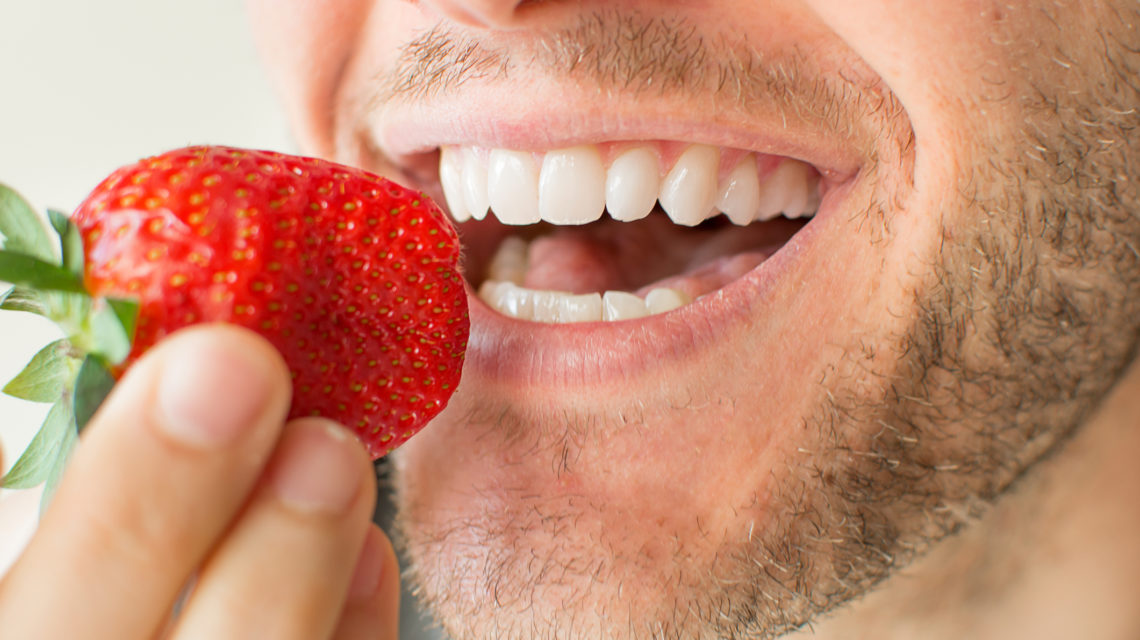Dental implants are permanent, natural-feeling and -looking tooth replacements. They’re invaluable in restoring full functionality to patients’ teeth, not to mention bringing back an attractive smile. Most importantly, dental implants allow patients to eat whatever foods they want with no restrictions.
Like any orthodontic procedure, however, dental implant surgery requires a recovery period. It’s especially necessary to allow dental work to heal fully, since the tissue surrounding the teeth and gums is extra sensitive, needing careful maintenance to restore itself.
The most important aspect of dental implant surgery recovery is watching what you eat and drink for a few weeks. Oral surgeons recommend taking a very progressive, deliberate approach to reintroducing certain foods back into your diet. This encourages faster recovery while protecting the new implants as they assimilate to the rest of your gums and mouth.
Here’s a rough guide to what foods you should eat — and avoid — in the first weeks after getting dental implants.
The first two days after surgery: You can resume consuming food about an hour after successful implant surgery. In the very sensitive, initial stage of your recovery, you’ll want to limit your food intake to cool liquids only. Avoid hot drinks for the first few hours outside the operating room. Drink straight from the glass; don’t use straws or any drinking device that requires suction for at least two weeks.
The first week: You’ll be on a soft-food diet for about three months after getting your dental implants. Yes, that’s a long time to avoid crusty bread and corn on the cob, but it’s essential to make sure your implants have the right conditions to acclimate with your other teeth and gums. You’ll also be outfitted with a temporary prosthetic tooth that’s not suitable for biting on crunchy or tough foods.
During the first week, in addition to liquids, you’ll want to stick to foods that don’t require any chewing at all:
- Soups
- Yogurt
- Cottage cheese
- Mashed avocados
- Popsicles
- Jell-O
- Applesauce
- Pudding
- Smoothies
- Milkshakes
The second week: At this point, you can re-introduce solid food back into your diet — as long as it’s soft and easy to chew. Any food that you can cut easily with the side of a fork is fine:
- Soft, seedless fruits (bananas, mangoes, pears, peaches)
- Steamed vegetables
- Soups and stews with soft meat
- Broiled fish
- Waffles and pancakes
- Cooked cereals (oatmeal, grits, etc.)
- Thin pasta (spaghetti, elbow macaroni, orzo)
- Mashed potatoes
- Very soft bread and muffins
- Ice cream
- Scrambled eggs
What to avoid: Sadly, certain immensely popular and satisfying food items shouldn’t be on your menu for at least a couple of months, since they’re tough to chew or could damage your new implants:
- Crusty bread and sub sandwiches
- Corn on the cob
- Chips and hard pretzels
- Uncooked apples and vegetables
- Hot foods
- Pizza crust
- Granola
- Gum
- Hard candy
After a few months of your selfless sacrifice, your newly installed implant will be fully integrated, permanent, and ready to handle any kind of food and beverage you throw its way.


